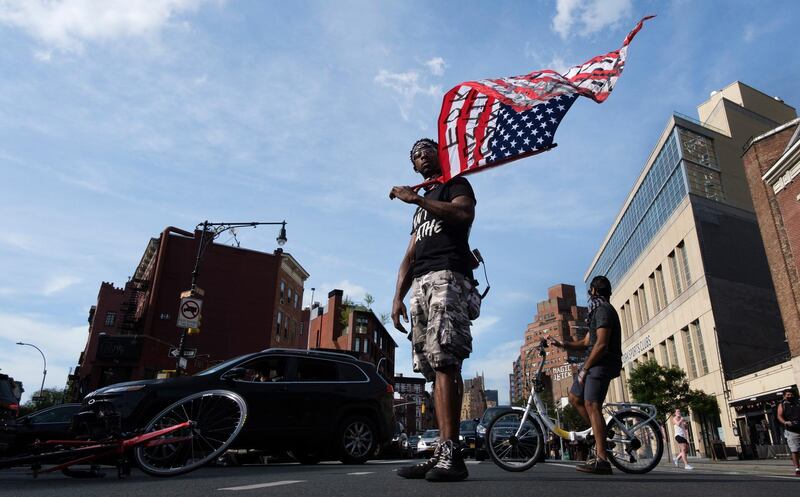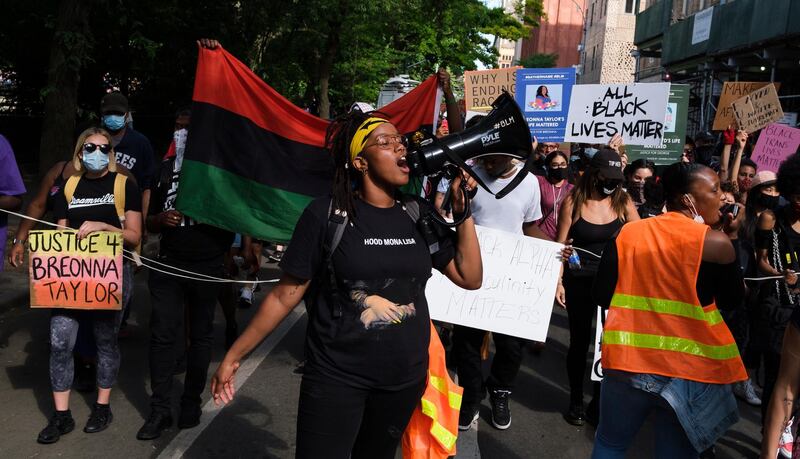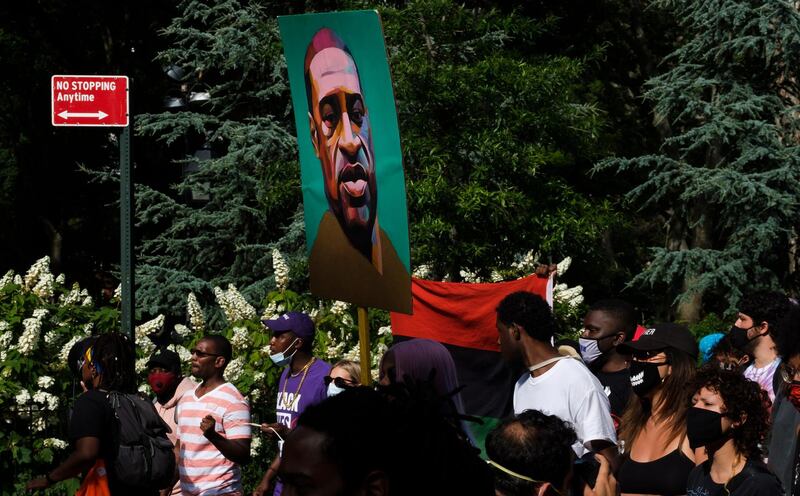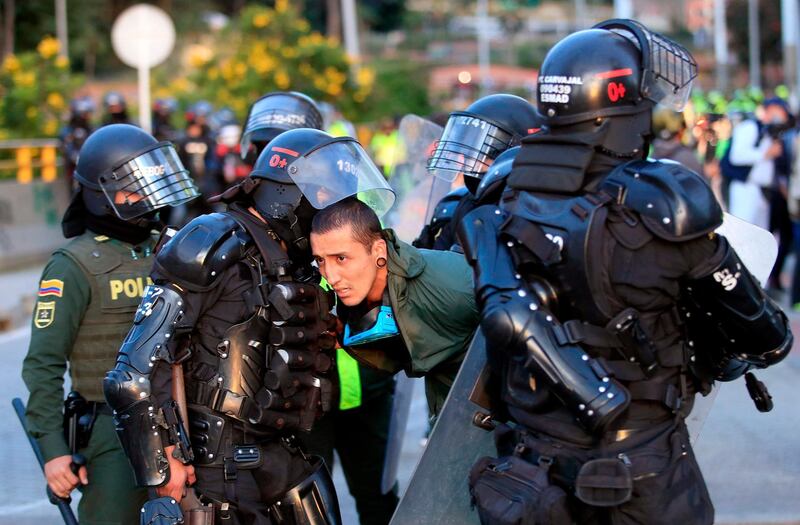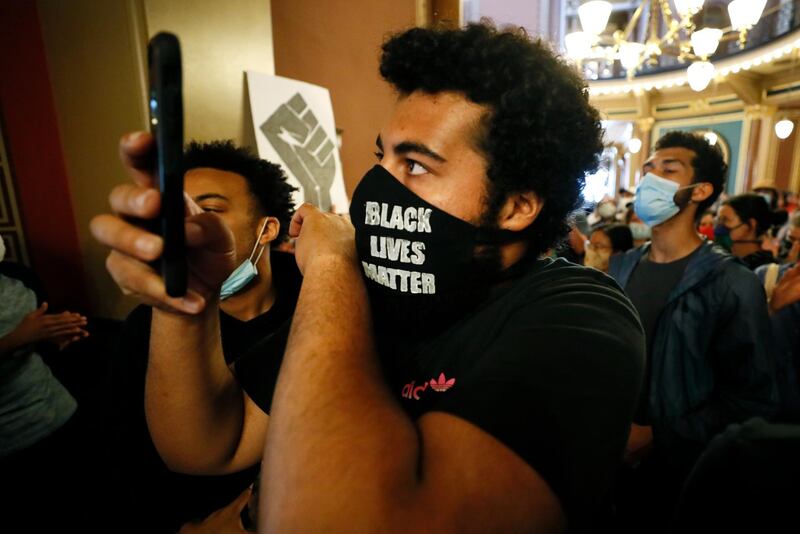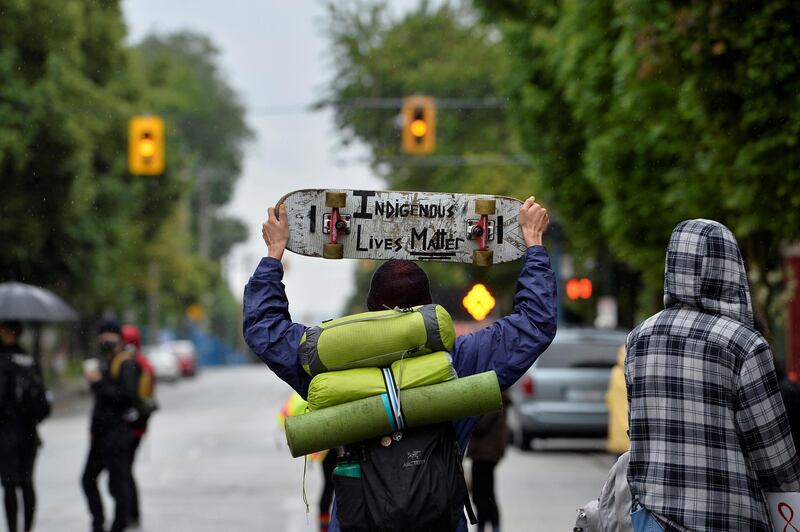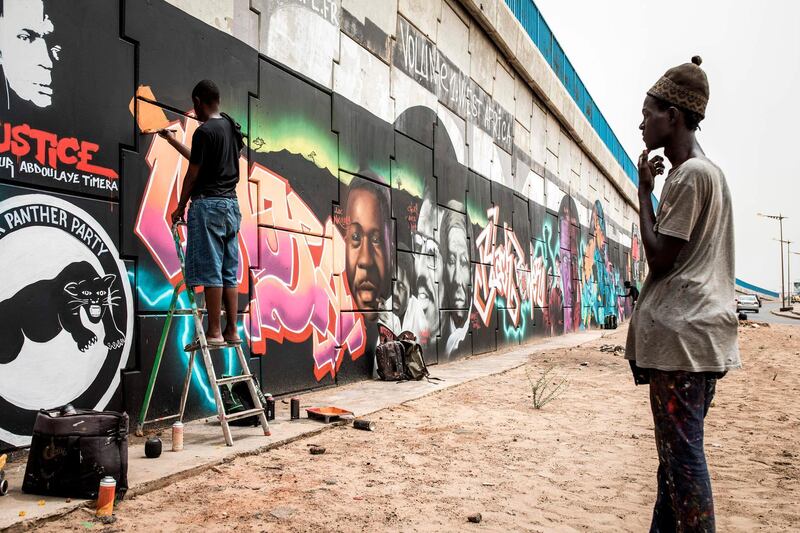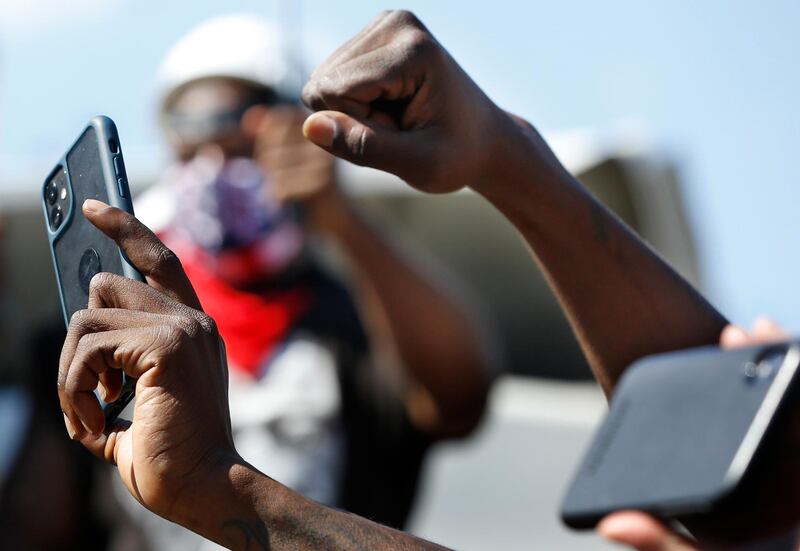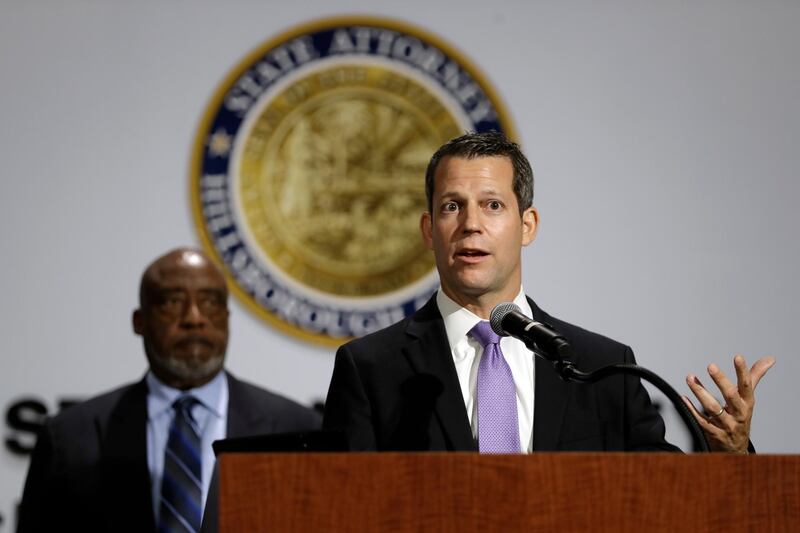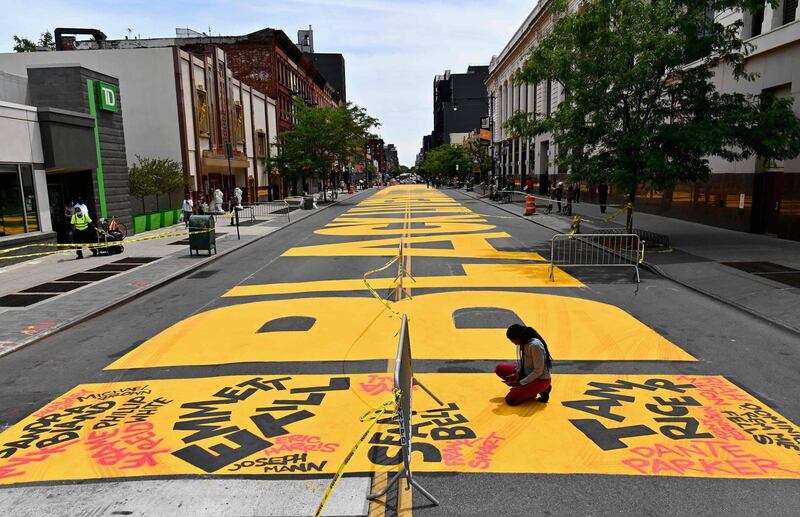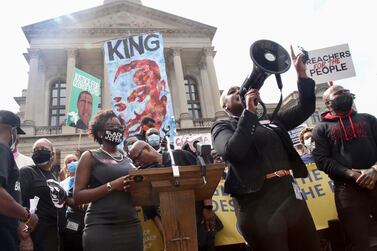US President Donald Trump on Tuesday signed an executive order to encourage better police practices, after nationwide protests reignited discussions about police accountability and racial inequality.
The Safe Policing for Safe Communities executive order will address policing standards across the US.
Mr Trump stressed the need for higher standards and commiserated with mourning families.
But he praised the vast majority of officers as selfless public servants and criticised the Democrats.
“Reducing crime and raising standards are not opposite goals,” he said before signing the order, flanked by police.
It will establish a database to track police officers with complaints of excessive use of force in their records.
Police departments would be able to check the database before hiring someone from another department.
The order also gives police departments a financial incentive to adopt best practices, such as a ban on choke holds.
It encourages co-responder programmes, in which social workers join police in responding to non-violent calls involving mental health, addiction and homelessness.
"I am signing an executive order encouraging police departments nationwide to adopt the highest professional standards to serve their communities," Mr Trump said.
The White House said the order was expected to improve police accountability, increase transparency and see more resources invested in police training, recruiting and community engagement.
But Mr Trump was largely supportive of police in his remarks, rejecting calls from protesters that law enforcement agencies should lose their funding and be abolished.
He issued a strong condemnation of “radical and dangerous efforts to defund, dismantle and dissolve our police departments".
“Americans know the truth: without police, there is chaos," Mr Trump said. "Without law, there is anarchy. And without safety, there is catastrophe."
He said his plan was an alternative to the movement for cutting funds to police, which has emerged from the protests.
The executive order follows the killing on May 25 of George Floyd during his arrest by white Minneapolis officers.
Mr Trump's remarks came after he held a meeting on Tuesday morning with African-American families whose relatives were killed in police encounters
"All Americans mourn by your side," he said. "Your loved ones will not have died in vain.
"We're one nation. We grieve together and we heal together."
The comments were a change in tone for Mr Trump, who has sold himself as a "law and order" president.
At the height of the demonstrations, he threatened protesters on Twitter, writing that "when the looting starts, the shooting starts".
On Tuesday, he again railed against those who committed violence during the largely peaceful protests.
But he has faced widespread criticism over his response and some of his advisers have expressed concern that his handling of the protests and the coronavirus pandemic have damaged his chances of being re-elected in November.
Meanwhile, the US Senate Republicans could vote as soon as next week on proposed policing changes.
It is an abrupt shift of priorities in an election year as the party rushes to respond to nationwide protests over the deaths of African Americans in police hands.
The emerging legislative package, along with Mr Trump’s executive orders, are perhaps the most ambitious law enforcement changes considered by Republicans in decades.
Protests across the US against police brutality are now in their third week, with several demonstrations seeking the removal of historical monuments of people with links to racial inequality.
A protester who tried to remove a statue of a Spanish conquistador was shot in Albuquerque, New Mexico, on Monday night.
Police said they arrested a former city council candidate and charged him with shooting and critically wounding the protester.
The incident occurred while protesters clashed with members of an armed civilian militia, the criminal complaint said.
The group known as the New Mexico Civil Guard militia tried to protect the statue as protesters attempted to pull it down.
The city of Albuquerque took down the statue on Tuesday.
Another civilian faction, the "boogaloo" group, was criticised after a California Air Force sergeant with ties to it was charged on Tuesday with the murder of an Oakland policeman during Black Lives Matter protests.
The officer was one of two he is accused of killing in recent weeks.
The Justice Department said Steven Carrillo gunned down Oakland police officer Patrick Underwood in a drive-by shooting during the May 29 protests over the killing of Mr Floyd.
Eight days later, on June 6, Mr Carrillo's van was found near Santa Cruz, and when police neared his residence, he ambushed them and killed another officer, Damon Gutzwiller.
He was tracked down and arrested after he stole another vehicle and tried to escape.
The FBI said r Carrillo appeared to have used his own blood to scrawl the word "Boog" and the clause, "I became unreasonable", on the hood of the car he tried to hijack before he was arrested.
Officials said the Air Force security specialist was associated with the underground "boogaloo bois" ideology, which espouses anti-government extremism with support for a civil and race war.
Its followers often openly carry assault weapons and wear military-like garb in public.
